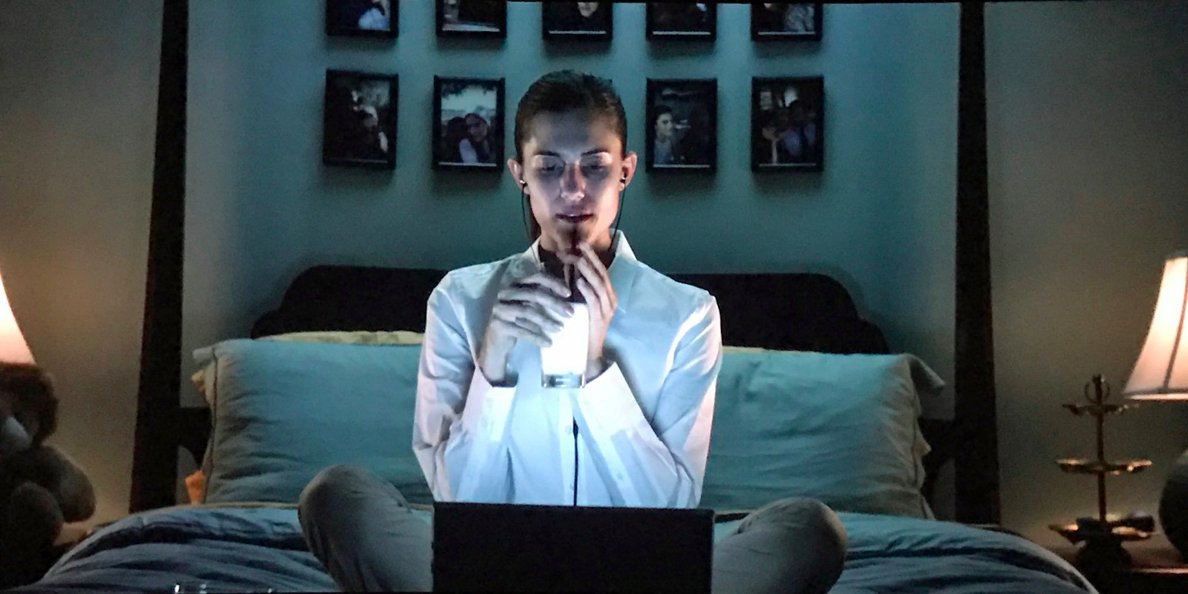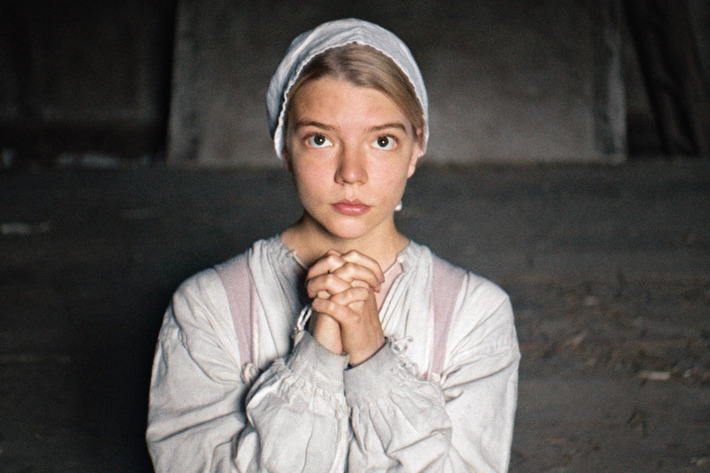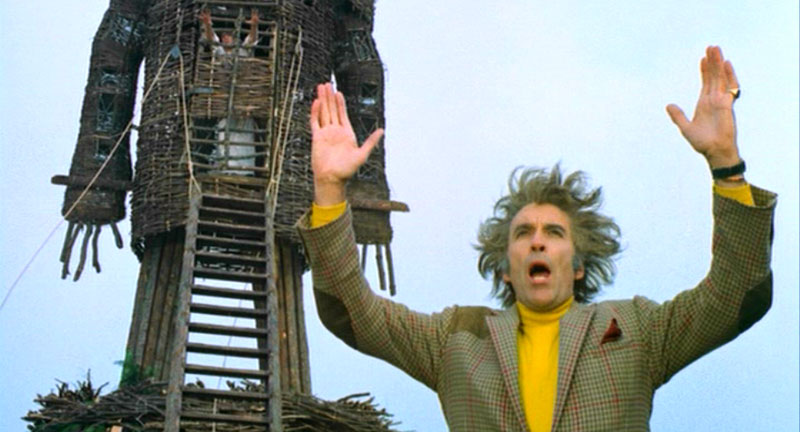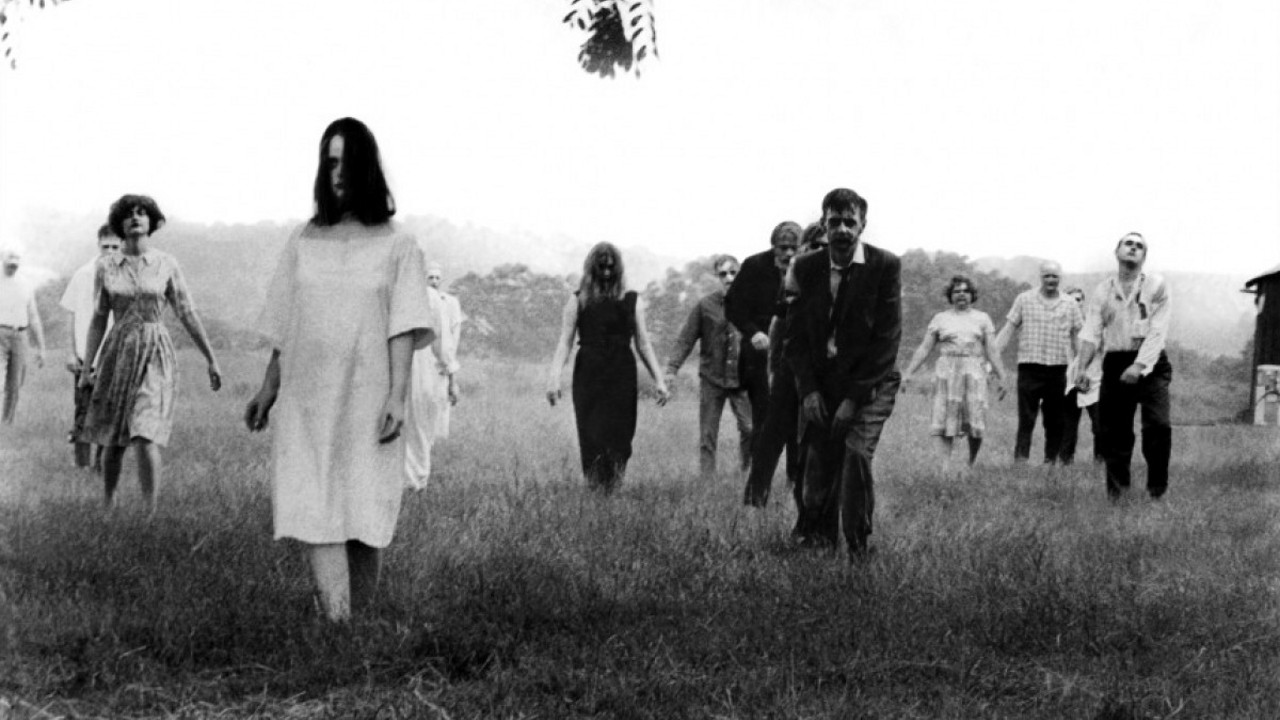5. Get Out (2017) – Jordan Peele

You can’t talk about award recognition in horror without talking about Get Out, one of the few horror movies to ever be nominated at the oscars. Written and directed by Jordan Peele, the film earned four nominations, including Best Picture, Best Original Screenplay, Best Director, and Best Actor. Peele ended up taking the award for Best Original Screenplay, a well-deserved win for one of the most unique and exciting films in years. Similarly to Ari Aster, Peele’s massive debut success allowed him to enter production on his next film, Us (2019), the following year.
Get Out features a fantastic performance from Daniel Kaluuya, who plays Chris Washington, an African American photographer from New York that’s about to meet the family of his girlfriend, Rose Armitage (Allison Williams). The Armitage family is white and wealthy, a combination that quickly proves to be concerning, considering the strangely forceful comments made by father Dean (Bradly Whitford) and brother Jeremy (Caleb Landry Jones) about their “appreciation” for black people. These comments become commonplace as Chris meets more and more white people who are seemingly friendly, yet feel the need to uncomfortably comment on his physique and his blackness. Before the horror really kicks off, we are forced to sit through these awkward and comedic conversations that could only mean bad news for Chris.
Not only is this brilliant film one of the greatest horror debuts of all time, it’s also one of the most relevant to come out in the past decade because of what it has to say about racism, whether intentional or unintentional, in a post-Obama world.
4. The Witch (2015) – Robert Eggers

Three years before releasing Hereditary, A24 distributed the period horror The Witch, the directorial debut from Robert Eggers. The Witch opens on a puritan family in 17th century New England, a setting that should already feel unique enough to spark some interest. We immediately see that this family of seven is being banished from their puritan colony over an unclear religious disagreement, sending them to a secluded farmhouse near the edge of a forest. Little by little, strange and terrifying events begin to occur to Thomasin (Anya Taylor -Joy) and the rest of her family, starting with the seemingly supernatural disappearance of the youngest baby sibling, Samuel. It soon becomes clear that they are not entirely alone out there, and as tensions mount, the family begins to question Thomasin’s role in these events as well.
One amazing aspect of The Witch that’s immediately apparent upon viewing is the precise attention to detail when it comes to the time period that the film is set in. From the accents to the costume design to the real belief and fear of witches, Eggers does 17th century New England right. So right, in fact, that it actually makes the viewer understand why someone would believe in witches at the time, even when there was no visible proof. This unusual immersion really proves that Eggers put great care and research into the film, unlike many period pieces that came before it. He also proves himself to be an expert at crafting gruesome imagery, making The Witch a debut film that will satisfy horror fans and historians alike.
With critical and financial success that supports this claim, Eggers was able to make his second film with A24, The Lighthouse (2019), years later.
3. The Wicker Man (1973) – Robin Hardy

Back in the early 70’s, Robin Hardy got the chance to direct his first feature, a film that would serve as an inspiration for folk and pagan horror in the years to come. Vaguely based on the 1967 horror novel Ritual, The Wicker Man introduces us to the dreamy island of Summerisle, where police officer Neil Howie (Edward Woodward) has been sent to investigate the disappearance of a girl. Due to his strong Christian beliefs, Howie is immediately seen as “the other” compared to the islanders who practice a form of celtic paganism.
From the very beginning, the islanders make little effort in hiding their beliefs, choosing to carry on with their sexual rituals and May Day celebrations despite his sudden presence. While these traditions start as strange, yet peaceful occurrences, it quickly becomes clear that the people may be hiding something more sinister and shocking than they are allowing Howie to see.
One aspect of The Wicker Man that makes it truly special is the ever-changing atmosphere. Some scenes have a quality of realness, making it feel like they are taken straight out of an ethnographic film about pagan beliefs. Other scenes give off the opposite effect of feeling like a dream, where people gather naked in fields and sing songs of seduction through closed doors. Speaking of songs, much of the folk music in the soundtrack is directly taken or inspired by folk traditions, adding to the well-researched culture and atmosphere. Nearly 50 years later, The Wicker Man is still a perfect example of a film that takes the viewer on a grisly journey through the obscure.
Hardy went on to direct a few more films that didn’t gain nearly as much traction, including a companion piece to The Wicker Man, titled The Wicker Tree (2011).
2. Eraserhead (1977) – David Lynch

No one has the ability to create a dreamy atmosphere quite like David Lynch, and his black and white debut film, Eraserhead, remains one of his dreamiest to date. So dreamy, in fact, that the plot quickly becomes difficult to describe in any way that makes sense. Nonetheless, Eraserhead lets us into the life of the painfully awkward Harry Spencer (Jack Nance), who’s head and hair actually resembles that of the title of the film.
After travelling through an industrial landscape that serves as a background for most of the film, Spencer’s girlfriend, known as Mary X (Jeanna Bates), has just revealed that she has unexpectedly given birth to their child. However, this is no ordinary baby. Alien-like, disfigured, and plagued by many health problems, this child is an object of disgust and fear for Spencer. After realizing that he must care for the baby in his small apartment, Spencer begins to drift off into a world of daydreams and terrifying delusions, resulting in a fantastic film that is equally confusing and compelling.
Just like most of Lynch’s films, the meaning of Eraserhead has become a highly debated topic over the years. While Lynch rightfully refuses to speak on the matter, many fans have come up with their own conclusions. The most popular belief is that the film is about the fear of fatherhood, but others may believe that it has more to do with a fascination with sex or avoiding the general responsibilities of life. No matter what you believe, viewers must remember that there is no single meaning in this layered, abstract masterpiece. The only thing that matters, especially in a film like this, is your own interpretation and your own meaning.
Lynch ended up with one of the most unique filmographies ever, including films like The Elephant Man (1980), Blue Velvet (1986), and Mulholland Drive (2001).
1. Night of the Living Dead (1968) – George A. Romero

The greatest debut horror film of all time is none other than Night of the Living Dead, the first feature from horror legend George A. Romero. This classic opens with Barbara (Judith O’Dea) and her brother Johnny (Russell Steiner) as they visit their late father’s grave at a rural cemetery. It isn’t long before a strange, lethargic man attacks them, killing Johnny and forcing Barbara to run away to a nearby house. At the house, she is met by Ben (Duane Jones), who essentially saves her while she’s in a state of shock. From then on, the whole film takes place in and around this single location, where they meet more people looking for shelter and many more “ghouls” looking for flesh.
Aside from the story itself, another aspect of the film that is constantly brought up as something that made it unique for its time is the casting of Duane Jones, an African American man who plays a hero and a leader within a predominantly white cast. This was unusual for the 60’s, and the events of the film caused many to believe that Romero was making a statement about American racism, which he firmly denies as his motive. While it’s certainly reflective of the late 60’s in some ways, Night of the Living Dead remains a relevant portrayal of the distrust and discourse that occurs between people in a time of crisis.
Even though the film wasn’t released without initial controversy, it started a lengthy and successful career for Romero, which included films like Martin (1978), Creepshow (1982), and five other installments in the “Night of the Living Dead film series.” Now deceased since 2017, Romero will always be remembered as a pioneer of the zombie film and one of the best horror directors of all time.